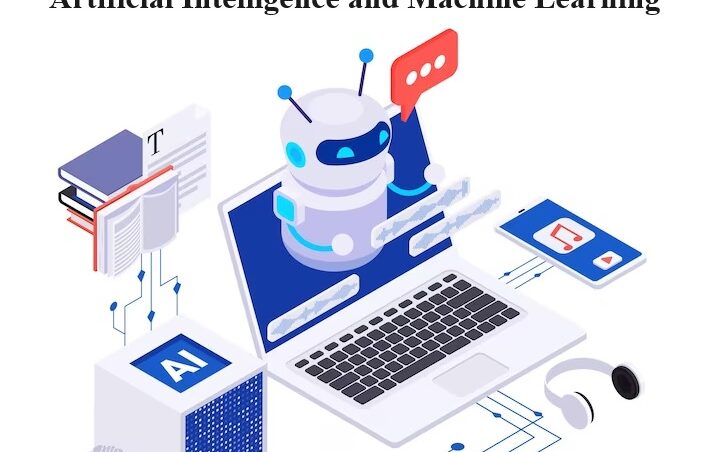
Difference between Artificial intelligence and Machine learning
In the ever-evolving landscape of technology, two terms that have gained immense prominence are Artificial Intelligence (AI) and Machine Learning (ML). These cutting-edge fields have revolutionized various industries and are often used interchangeably. However, it is essential to recognize that AI and ML are distinct concepts, each with its unique characteristics and applications. In this comprehensive guide, we will delve into the differences between Artificial Intelligence and Machine Learning, shedding light on their definitions, capabilities, and real-world applications.
Understanding Artificial Intelligence
Artificial Intelligence, often abbreviated as AI, refers to the broader concept of creating machines or systems capable of performing tasks that typically require human intelligence. AI systems are designed to simulate human thought processes, enabling them to make decisions, solve complex problems, and adapt to changing environments.

Key Characteristics of Artificial Intelligence
- Learning and Adaptation: AI systems possess the ability to learn from data and improve their performance over time. They adapt to new information and adjust their behavior accordingly.
- Reasoning and Problem Solving: AI systems can analyze vast datasets, identify patterns, and make informed decisions based on logical reasoning.
- Natural Language Processing (NLP): AI can understand and interact with human language, making it valuable in chatbots, virtual assistants, and language translation services.
- Computer Vision: AI can interpret and process visual information, enabling applications like facial recognition, image classification, and autonomous vehicles.
- Robotics: AI-driven robots are capable of performing tasks in various industries, such as manufacturing, healthcare, and logistics.
- Expert Systems: AI can mimic the decision-making abilities of human experts in specific domains, assisting with diagnoses, financial analysis, and more.
Real-world Applications of Artificial Intelligence
AI has a broad range of applications across industries, including:
- Healthcare: AI is used in medical diagnosis, drug discovery, and patient care.
- Finance: AI algorithms are employed in stock market analysis, fraud detection, and credit scoring.
- Retail: AI powers recommendation systems, inventory management, and personalized marketing.
- Transportation: Autonomous vehicles and route optimization rely on AI technology.
- Entertainment: AI-driven content recommendation and virtual reality experiences enhance the entertainment industry.
Exploring Machine Learning
Machine Learning, often referred to as ML, is a subset of Artificial Intelligence that focuses on the development of algorithms and statistical models. These models enable computers to perform tasks without explicit programming, relying on patterns and inference instead.

Key Characteristics of Machine Learning
- Data-Driven: ML algorithms learn from data, identifying patterns. It makes predictions or decisions based on the information they’ve been trained on.
- Supervised and Unsupervised Learning: ML can operate in both supervised (with labeled data) and unsupervised (without labeled data) modes.
- Classification and Regression: ML is used for classifying data into categories and predicting numerical values.
- Clustering: ML algorithms group similar data points together, helping in data segmentation and also pattern recognition.
- Deep Learning: A subset of ML, deep learning involves neural networks with multiple layers, suitable for tasks like image and also speech recognition.
- Reinforcement Learning: ML models can be trained to make decisions through trial and error. Its is used in robotics and also game playing.
Real-world Applications of Machine Learning
Machine Learning has found applications across various domains, including:
- Recommendation Systems: ML powers content recommendations on platforms like Netflix and Amazon.
- Healthcare: ML assists in disease diagnosis, predicting patient outcomes, and also drug discovery.
- Natural Language Processing: ML algorithms enhance language translation, sentiment analysis, and also chatbots.
- Finance: ML is used for fraud detection, credit risk assessment, and algorithmic trading.
- Manufacturing: ML optimizes production processes, reduces defects, and predicts equipment maintenance needs.
- Autonomous Systems: Self-driving cars and also drones rely on ML for navigation and decision-making.
Key Differences Between AI and ML
While AI and ML share common goals of enabling machines to perform intelligent tasks, there are distinct differences between the two:
- Scope: AI encompasses a broader range of capabilities, including reasoning, perception, and natural language understanding, while ML primarily focuses on pattern recognition and data-driven tasks.
- Learning Approach: AI systems can operate with or without learning from data, while ML is fundamentally data-driven and relies on training algorithms.
- Complexity: AI systems tend to be more complex and may incorporate various ML techniques as part of their functionality.
- Applications: AI has a wider range of applications, including robotics and expert systems, while ML is more commonly associated with predictive analytics and recommendation systems.
In conclusion, both Artificial Intelligence and Machine Learning are integral to the technological advancements of today’s world. Understanding their differences and applications is crucial for harnessing their potential to drive innovation and efficiency in various industries. As technology continues to evolve, staying informed about AI and ML will be essential for businesses and individuals alike.
LIKE WHAT YOU’RE READING?
CHECK OUT SOME OF OUR OTHER GREAT CONTENT HERE
- ARTIFICIAL INTELLIGENCE (AI) – A BEGINNER’S GUIDE
- HOW TO START A CAREER IN ARTIFICIAL INTELLIGENCE?
- WHAT IS MACHINE LEARNING?
- DATA SCIENCE – THE ULTIMATE GUIDE
- HOW AI IS USED IN DIGITAL MARKETING?
- TOP 5 BEST SEO TOOLS(2022)
- TOOLS OF MACHINE LEARNING
- 7 MOST POPULAR TOOLS FOR DEEP LEARNING




1 Comment